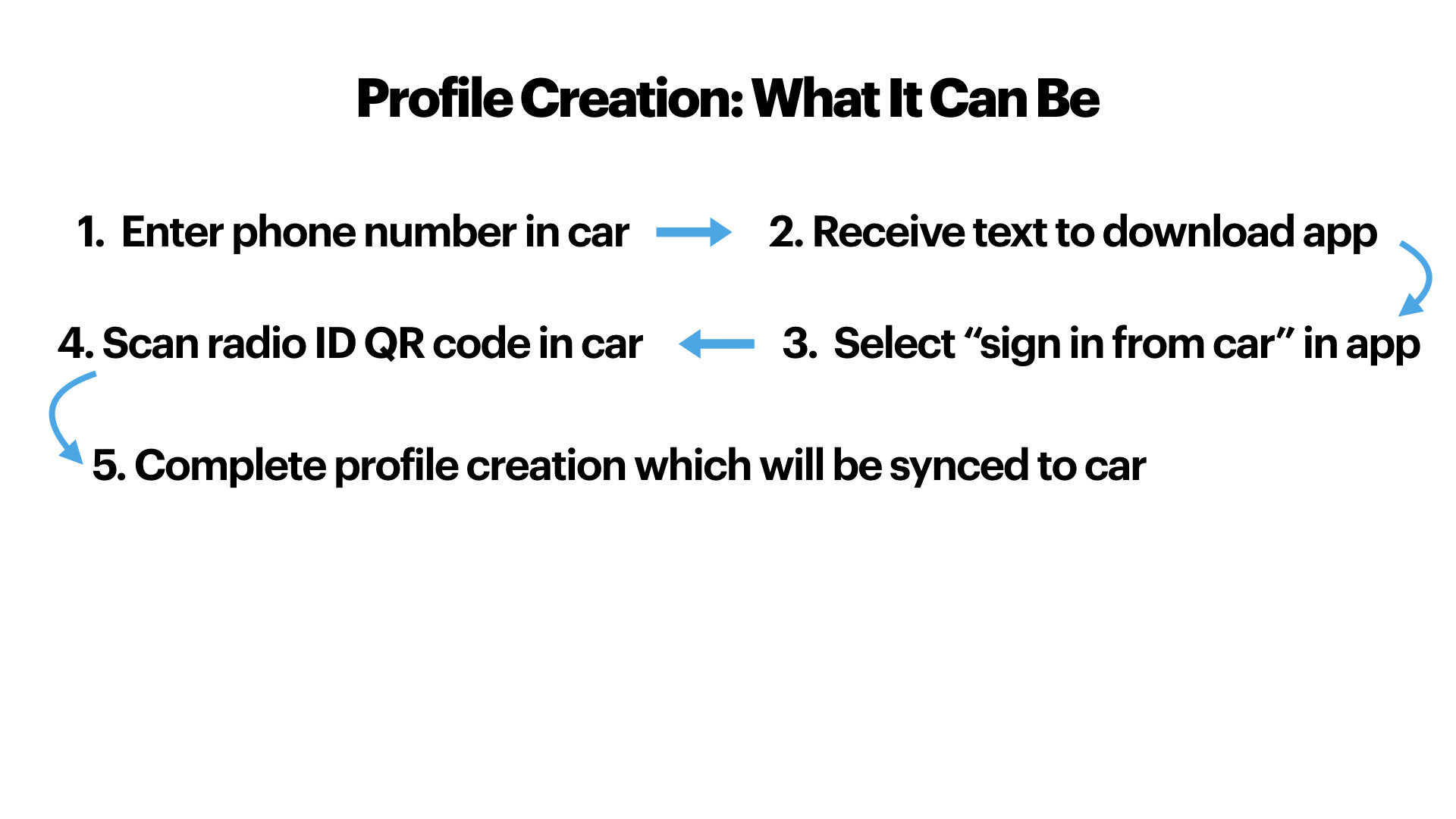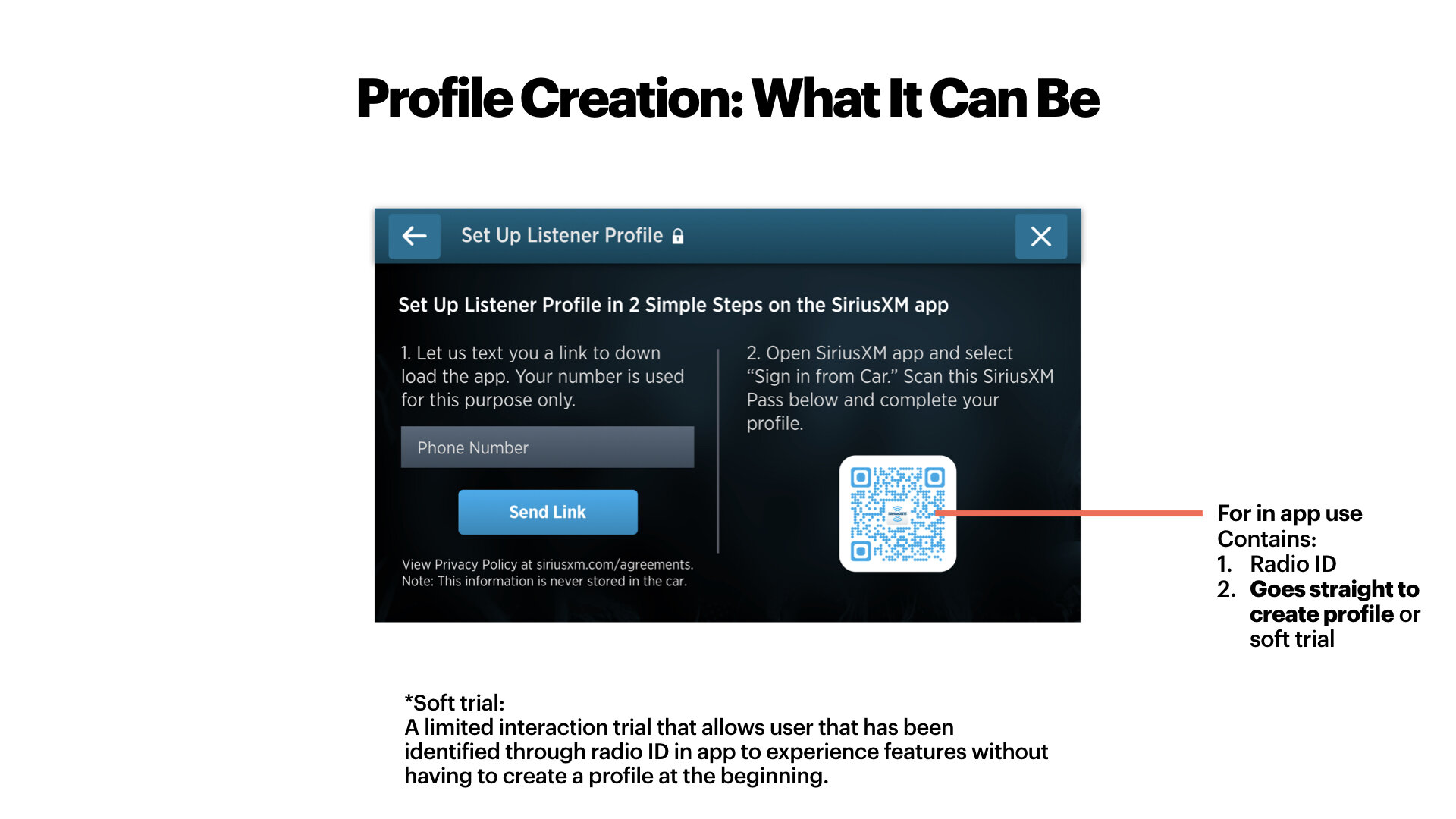
User Experience Design at SiriusXM
Designing next-generation connected in-car experience
TL;DR
During Fall 2018 and Spring 2019, I worked on the AXD (Automotive Experience Design) team at SiriusXM and helped design 360L, SiriusXM’s next-generation connected in-car experience. Individually, I completed two end-to-end projects: one with Panasonic that was showcased at CES 2019, and another with an Asia-Pacific automotive OEM that secured a key partnership.
Having been into cars my whole life, it didn’t take me long to familiarize myself with automotive design paradigms. I was fortunate enough to be given responsibilities similar to those of a full-time role, such as being the only person representing SiriusXM’s AXD team and leading communication during conference calls with Panasonics.
Skills gained
👥 Working in team environment
Agile development method
Two-week sprints
🚘 HMI design paradigms
Feature definition
Stakeholder alignment
Development-spec wireframes
Using InVision for feedback loop
🗣 Communication with stakeholders
Having to host meetings with the automotive partners and other teams at SiriusXM, I’ve learned to present ideas, research data and wireframes effectively to both internal and external stakeholders, and convince with evidence-based design decisions.
Lesson learned
✍️ Explorations > overthinking
Spending time making decisions in the head without mocking anything up is a poor use of time. The best way to figure things out is always to quickly getting hands dirty and test with users.
💬 Talk to colleagues / teammates
Don’t be afraid to speak up or ask questions. A complicated decision for me can be an easy one for them due to experience.
💎 Small good practices add up
Layer organization and labeling as well as use of symbols early on can save so much time later down the road.
Deliverable Fall 2018
Panasonic SPYDER 2.0 Demo with SiriusXM 360L
The prototype I designed and handed off to Panasonic was included as a part of their SPYDER 2.0 demo at CES 2019. Prototype password is my phone number on resume with no dash.
Presented at CES 2019
Deliverable Spring 2019
360L Interactive Prototype for an Asia-Pacific OEM
During Spring 2019 term, my design proposal and interactive prototype helped secure a key partnership with an Asia-Pacific automotive OEM. Prototype password is my phone number on resume with no dash.
Innovation Day
The AXD team and SiriusXM’s streaming team regularly held hackathon-style “innovation day” where we come together and tackle an issue for the whole day. The problem I participated in was:
How can we improve in-car to out-of-car conversion for trial users?
Context
Although SiriusXM has more than 34 million paid subscribers, an overwhelming majority of them are in-car only users, many without a user profile for SiriusXM to provide tailored experience outside the car as the company transitions from satellite radio to a more integrated audio content service.
New SiriusXM-equipped vehicle owners, many are younger than SiriusXM’s average subscriber, are more likely to subscribe if they become aware of SiriusXM’s out-of-car offerings (Mobile, Web, Voice) and have a simplified experience to create a user profile that ties their in-car and out-of-car activities.
Findings
I started by examining how we can group current trial users and their expected actions:
Trial users without profile ➔ create profile
Not aware of what profile adds to their experience.
Complexity in profile creation. Friction in creating profile in car.
Trial users without profile ➔ download app
Not aware of what the app adds to their experience.
No way of knowing who they are as drivers even if they have the app.
Trial users with profile ➔ download app
Not aware of what the app adds to their experience.
Proposal
It becomes quite clear that SiriusXM current in-car profile creation flow is way too complicated as outlined below on the left. I went ahead a proposed a simplified flow that utilizes two key elements:
- QR code embedded with radio ID unique to each vehicle for customer identification in and out-of-car
- Soft onboard that allows user to experience SiriusXM’s in and out-of-car experience with an incomplete profile




By implementing these measures, the entire user journey of profile creation from in-car to the app is significantly simplified, especially with the introduction of “Sign in from your car” which is effectively a one-step sign-in if you already have SiriusXM in your vehicle.
Soft trial offers trail users the option to skip SiriusXM’s lengthy account creation process and experience SiriusXM’s out-of-car offerings right away, with the option to finish setup later. This should greatly reduce the abandonment rate for first-time app trial users having to create a profile.
I find many parallels between smart TV experience and in-car infotainment, both of which require designing for a limited typing experience. QR code is widely used for cross-device sign on in smart TV applications, a tried and true flow that can be easily adopted for SiriusXM 360L. Each vehicle has an unique radio ID, which can be embedded into the QR code to identify first-time app users’ associated vehicle.






